4Kinship, a Santa Fe Contemporary Native Fashion Boutique

For decades, Santa Fe has been a world class shopping destination for Native American art, jewelry and crafts, especially during its annual Indian Market Week. But none of its stores has been owned by a Native person until now, says Diné designer and retailer Amy Denet Deal.
Last week, she opened 4Kinship, a brick-and-mortar outpost of her online store of the same name, featuring her own hand-dyed and upcycled boiler suits, parachute skirts, military jackets and T-shirts, alongside curated vintage.
More from WWD
Why the Fiorucci Store Was the Mother of All Retail Concepts
Unites States Retail in the Aftermath of Police Brutality Protests
The store also stocks goods by 12 other contemporary Indigenous designers, including heart and soul rings by Mary Jane Garcia, silver pieces by Gino Antonio, hats by Thundervoice, pinon cream and lip balm by Ashley Tsosie, rugs by Virginia Gumbo and Shirley Brown, wall art by Jay Smiley, and totes and doormats with Navajo sayings by Nihi Designs.
“It’s really unbelievable that a town that has built its wealth on the culture of Native Americans is doing nothing to include us and our businesses,” Denet Deal said, explaining how her heart sank when she contacted the Santa Fe City Council and found out a lack of initiatives to support Native businesses.
Her shop is on Santa Fe’s tony Canyon Road, home to some 80 art galleries, many with large-scale sculptures out front. With its chic outdoor mural and store windows showcasing hand-painted leather jackets, 4Kinship easily competes.
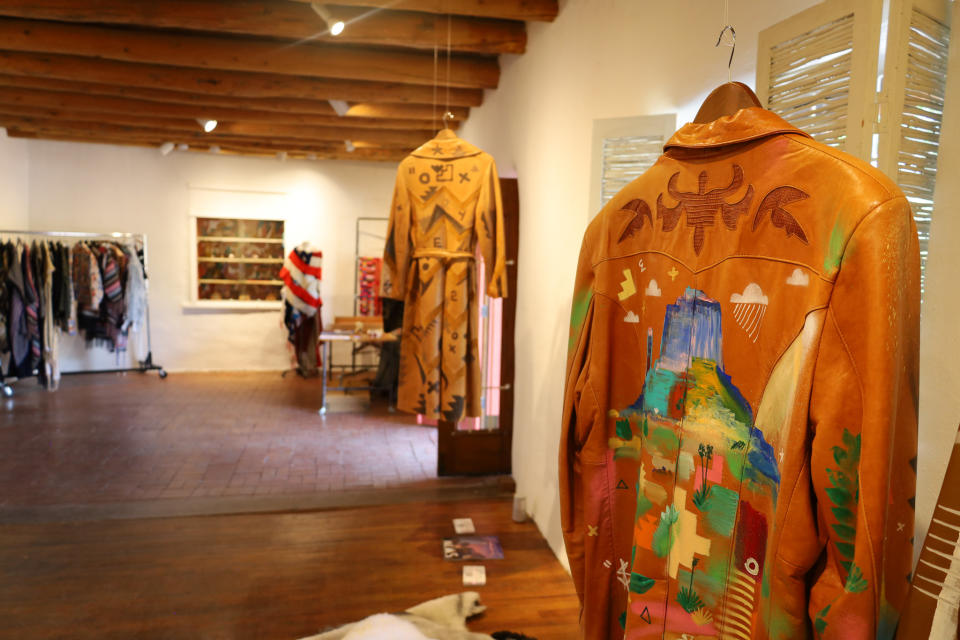
The adobe space has three sunlit rooms with racks of clothes color-coordinated, creating a rainbow effect, and a corner for a monthly guest artist, currently the Indo-Hispano designer Josh Tafoya.
A Parsons School of Design graduate who worked for New York designer Charles Youssef, Tafoya moved back to his hometown, Taos, during the pandemic. HIs namesake line includes handwoven shawls, apron dresses, asymmetrical coats and “patched identity” ponchos with a modern bent. He describes his innovative designs as “brown people couture.”
Landing in 4Kinship has been gratifying, Tafoya continued. “[Amy] has brought an outsider perspective and she knows the culture needs to evolve. A lot of the stores in Santa Fe and Taos are a little gate-keepery,” he said of their wariness to take risks.
During Indian Market, Denet Deal hosted a brunch with friends and family, marking the opening of her store with a traditional Diné blessing. In that spirit, she intends 4Kinship to be a community learning space with live events and books about Native history. “I want to be a place you can come to ask really silly questions like I do.”
Denet Deal, who was adopted by a non-Native family, didn’t discover her Diné heritage until late in life, when she reconnected with her mother online. “I was adopted into a loving family but my culture was erased…My parents just whitewashed by entire being. So my whole life, I’ve been trying to find my way.”
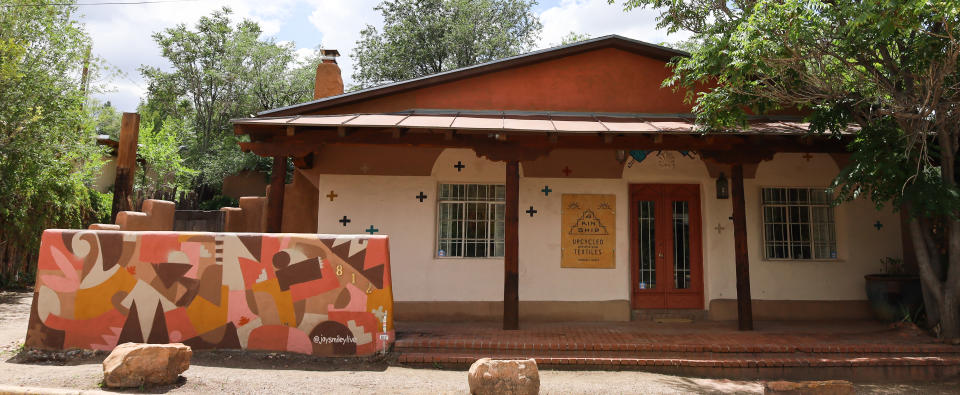
She spent 37 years in the fashion industry, starting at the Fashion Institute of Technology, then as a senior designer at Reebok, design director of Puma International and senior women’s designer for Puma U.S. Her career in activewear took her to New York, Herzo, Germany, and eventually Los Angeles.
Then, after having her daughter, Lily Yeung, now a student at Central Saint Martins, Denet Deal became passionate about sustainability, and started a consulting business. She launched her own label in 2015, and moved to New Mexico soon after, where she has worked with Native youths, and raised $1.2 million for community organizations.
While contemporary Native fashion includes many different creative points of view, Denet Deal sees commonalities. “I feel that there’s so much room for us in fashion just based on our deep and profound connection to our land. Because it’s the land of our ancestors. They’re literally here with us. I know that what I do is just vintage. It’s upcycled. But I can tell you, every aspect is based on my feeling about being here, driving around my homeland, and seeing the colors and the textures. And it guides me into creating something that is not traditional at all.”
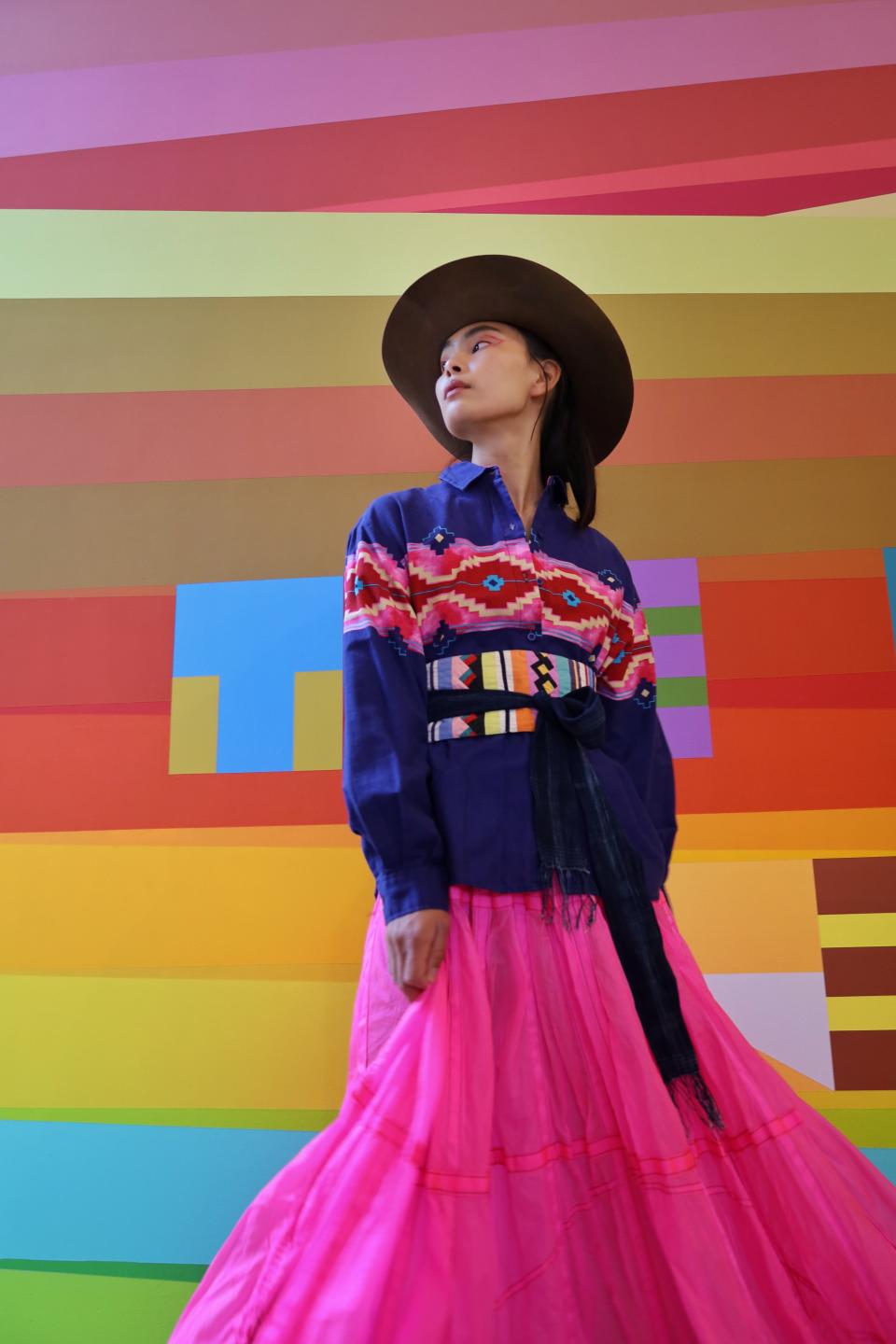
Denet Deal believes the Council of Fashion Designers of America and other fashion entities should do more to support Native talent.
“We need all of our kids in all the major appropriation brands. That’s the only way I see this working. It’s not having workshops at Ralph Lauren or Michael Kors to teach them how not to appropriate. We need kids to be hired there. We need mentorship, scholarships, futureships, that’s how it’s going to change this dynamic.”
“I’m down for that, because I’ve already had my career. I can speak to all those people because I was in corporate fashion. But I’m here representing Native culture, Native creatives and youth. I’m gonna help find pathways to guide people,” she said.
Most recently, Denet Deal has used her experience to help build the Diné Skate Garden, a skatepark for the remote Two Grey Hills chapter of the Navajo Nation, which has secured sponsorships from DC Shoes, Vans and the Tony Hawk Foundation.
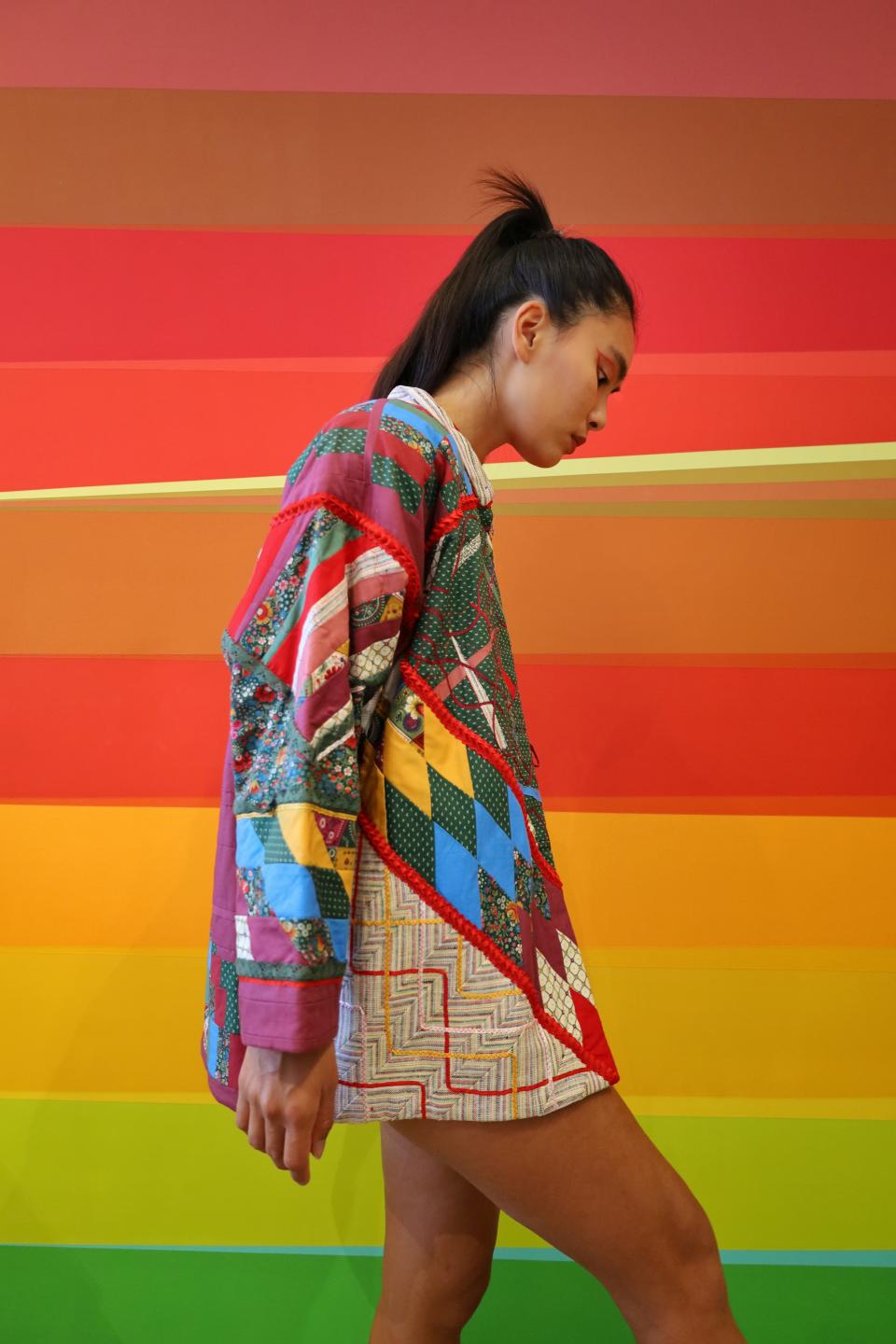
“My big message to fashion is being sustainable is not enough. You have to look at the sustainable aspects of how you interact with your community. So yes, I have everything done by hand, curated, low waste, everything that I can do to make it good for the earth. But I’m living on my ancestors’ land. How can I not give back and make this a sustainable community for the future?” Denet Deal said. “The Diné Skate Garden project came about because I was trying to imagine how I could keep my babies safe, and keep them off addictive things, and free of diabetes. It’s outdoor sports and recreation.”
The project is 100 percent funded, she said, and will start construction next month, with completion by Halloween. 4Kinship partnered with singer/songwriter Jewel and the Inspiring Children Foundation to fundraise for the project, which will be constructed by volunteers through the Wonders Around the World nonprofit dedicated to making skateboarding more accessible.
“If one little tiny brand like mine can raise that much money to give back, please don’t come to me and tell me you want to collab and give me 1 percent or 3 percent,” she said. “Because if everybody could turn on to this idea of reciprocity, look at what native land your businesses are on, and live in harmony with the people whose land you’re creating your wealth on, there’s so much we could do.”
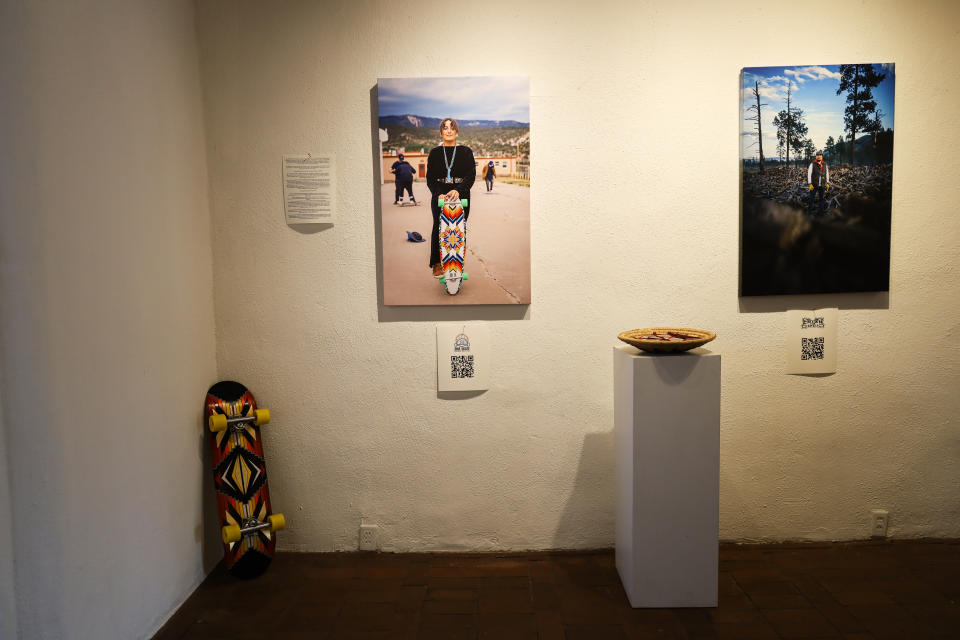
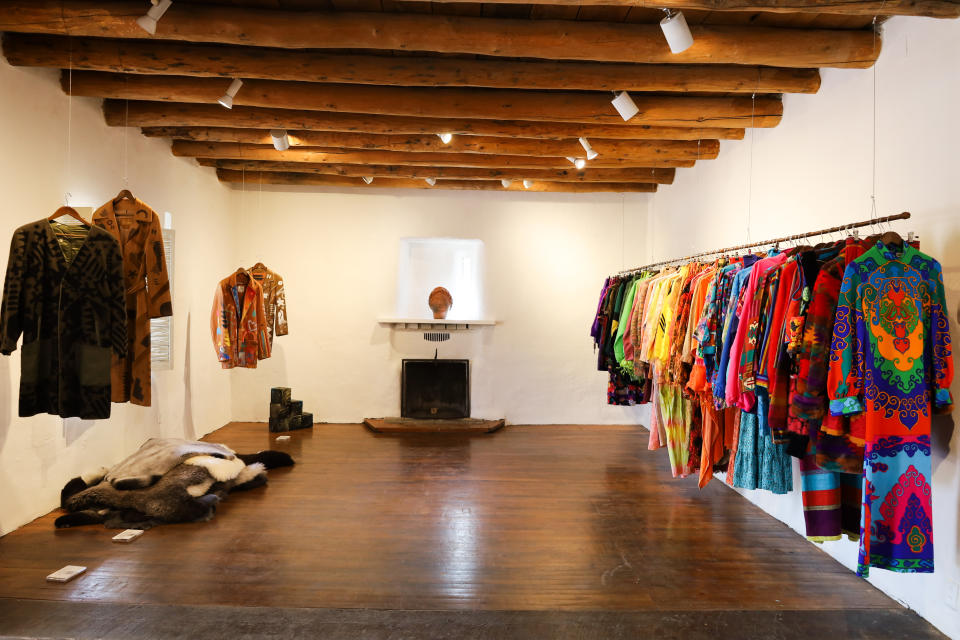
Best of WWD
Sign up for WWD's Newsletter. For the latest news, follow us on Twitter, Facebook, and Instagram.
